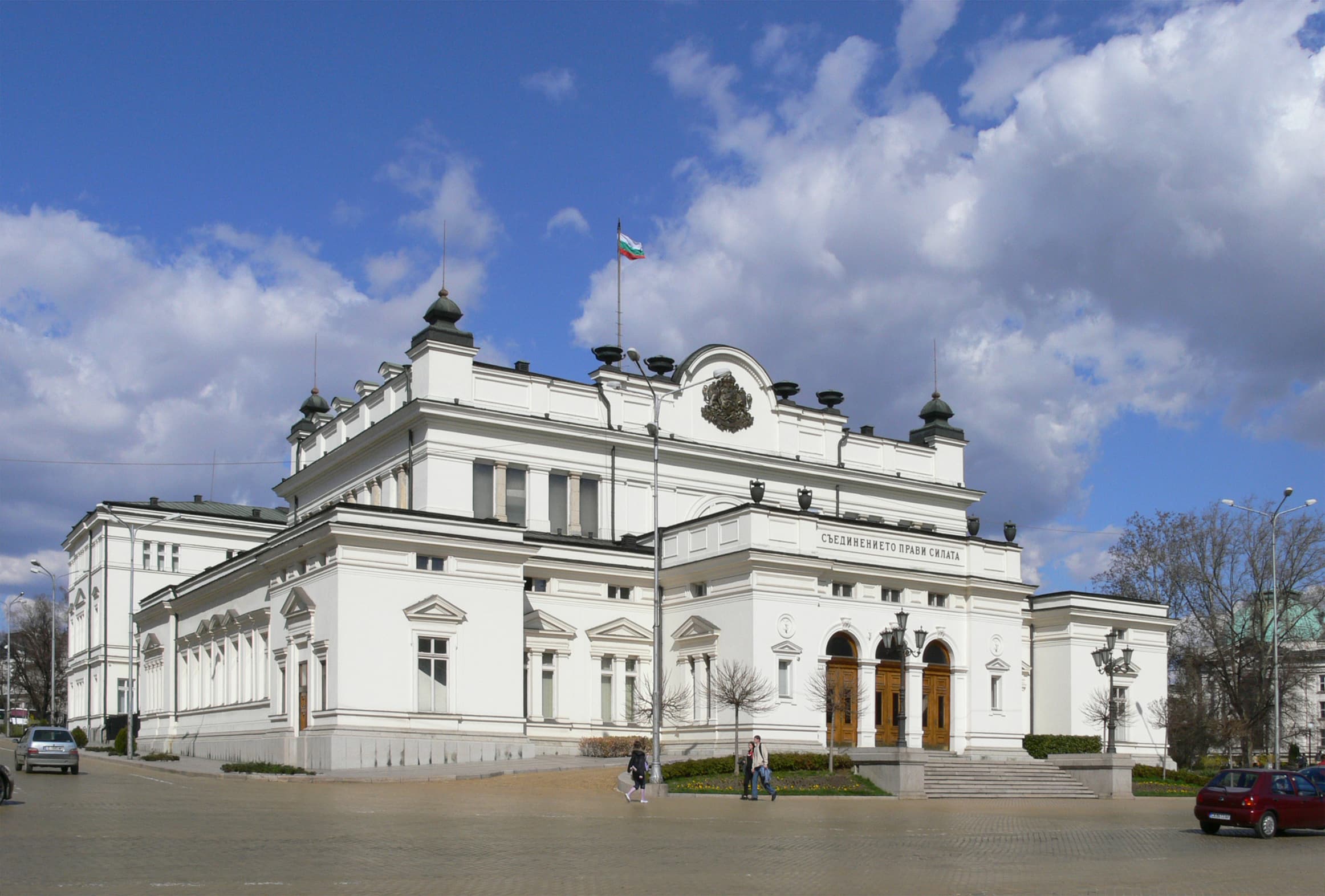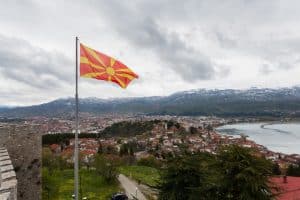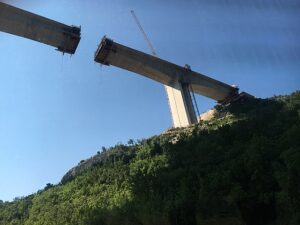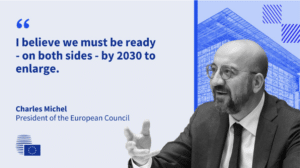Bulgaria’s parliament in Sofia (source: WikiMedia Commons)
Bulgaria’s incumbent coalition appears in large trouble as a main governing party decided to withdraw from the 6-month-old cabinet. Moreover, on June 22, a motion of no-confidence will be filed against PM Kiril Petkov’s government, who now has a minority in Bulgaria’s unicameral parliament. The events do not bode well for Bulgaria’s pro-EU aspirations – that are also closely watched in neighboring North Macedonia. Skopje is eagerly waiting for EU accession, but Bulgaria has blocked the process since 2017.
Main coalition partner withdraws
On June 8, ‘There Is Such A People’ (ITN) withdrew from the coalition, citing quarrels over North Macedonian EU candidacy and aspired revisions on the country’s budget and debt profile. ITN, a populist party under the lead of singer an TV-host Slavi Trifonov, has been a capricious coalition partner on international issues. It has repeatedly voiced support for EU and NATO, but now acts directly in opposition of earlier policy promises. All four ITN’s cabinet ministers have resigned and ITN parliamentarians have already commenced voting in accordance with the opposition. On top of that, ITN has now filed a vote of no-confidence against Petkov’s cabinet – potentially successful as the opposition has a majority in parliament now.
The three remaining coalition parties, Petkov’s “We Continue The Change” (PP), the Bulgarian Socialist Party (BSP) and Democratic Bulgaria (DB) now have 109 seats in the 240-seat parliament. Opposition parties have already said not to support Petkov’s bid for a minority government. This does not bode well for Petkov’s position. A caretaker coalition towards new elections seem realistic in an new episode of Bulgaria’s turbulent political landscape. The country already saw three parliamentary polls in 2021.
Meanwhile, the main defector ITN is in state of disintegration. Senior members of the parties have alleged its leaders Slavi Trifonov and Toshko Yordanov of ties with criminal organizations, saying that the debate over North Macedonia’s EU accession is only a diversion of the party’s corruption. However, defective MPs of ITN do not seem inclined to support Petkov’s bid to stay in power.
Protests
Last week on June 16, protesters gathered at Bulgaria’s parliament in a rare demonstration in support of Petkov. Protestors cheered PP and DB parliamentarians and threw bottles at opposition members. ITN’s Yordanov wished to address the crowd, but was taken back by police as protesters turned hostile towards him. Meanwhile, Petkov addressed the crowd, saying that “there will be a no-confidence vote but this shouldn’t disappoint you: it’s only a phase, which we will overcome.”
EU aspirations
The EU, and especially North Macedonia, will watch events in Bulgaria closely. Since 2019, Bulgaria has vetoed EU accession negotiations with neighboring North Macedonia over various cultural and historical disputes. North Macedonia, whose EU bid is tied to Albania’s, is a frontrunning EU candidate. Bulgaria’s blockade has stalled negotiations and patience is running out with Sofia, both in Skopje and in Brussels.
With Petkov coming into power six months ago, hopes were high that his pro-EU government would finally lift the veto. On June 9, he met with Oliver Varhelyí, EU’s Enlargement Commissioner, with the intent to further negotiate on Bulgaria’s demands towards lifting the blockade. For longer, ITN felt to be excluded from the topic, saying that the veto should remain in place. They were also angered by the Varhelyí-Petkov meeting. With Petkov’s coalition faltering, North Macedonia’s prospects of EU accession seem to become slimmer as well.
Next to North Macedonia’s aspirations towards joining the EU, Bulgaria wishes to join the EU’s joint currency in 2024. Petkov submitted a plan that attempts to move towards adopting the euro – but the ITN again felt left out of the process. The current instability of Petkov’s government will also affect Bulgaria’s aspirations to ditch its largely inflating lev currency.
A difficult path ahead
Until now, Sofia has been staunchly supporting Kyiv over the Russian invasion of Ukraine, even blocking Russian FM Lavrov of flying over Bulgarian territory towards Serbia. Also, Gazprom has completely cut off Bulgaria of Russian gas supplies. However, the Bulgarian economy falters due to high energy prices and overall inflation of the lev. Pro-Russian oppositional forces intend to gain at possible elections and to force the country to adopt a less EU-oriented stance.
North Macedonia and Brussels will be watching concerned. Turning candidacy towards accession is a priority for Albania and North Macedonia – and a new EU-sceptic government in Bulgaria could again stall the process for years to come.
Sources: Euronews Balkan Insight Radio Free Europe I Radio Free Europe II
Photo: WikiMedia Commons



